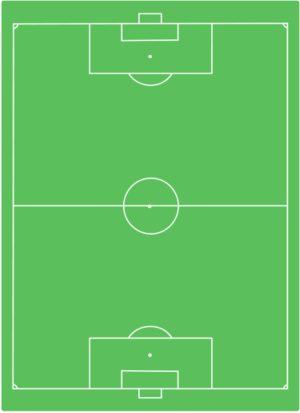F.C. Porto
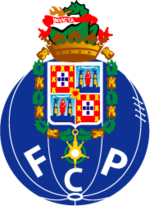 |
|||
| Full name | Futebol Clube do Porto | ||
|---|---|---|---|
| Nickname(s) | Os Dragões (The Dragons) |
||
| Short name | FCP | ||
| Founded | 28 September 1893 as Football Club do Porto |
||
| Ground | Estádio do Dragão Porto, Portugal (Capacity: 50,399[1]) |
||
| President | |||
| Manager | |||
| League | Portuguese Liga | ||
| 2009–10 | 3rd | ||
| Website | Club home page | ||
| Honours | Portuguese Liga: 24 Portuguese Cup: 15 Portuguese Super Cup: 17 European Cup: 2 (1987, 2004) UEFA Cup: 1 (2003) European Super Cup: 1 (1987) Intercontinental Cup: 2 (1987, 2004) |
||
|
|||
Futebol Clube do Porto (Portuguese pronunciation: [futɨˈbɔɫ ˈklub(ɨ) du ˈpoɾtu]) (Euronext: FCP), commonly known as FC Porto, Porto, or FCP, is a Portuguese football team from the city of Porto, in the northern region of the country. Founded in Porto in 1893, it is one of the Três Grandes, or Big Three, football clubs in Portugal, with Sport Lisboa e Benfica and Sporting Clube de Portugal being the other two clubs, FC Porto's two biggest rivals.
FC Porto is an internationally lauded team, with a national record of six international titles, becoming European and World Champions twice each in the 1987 and 2004 seasons. In 1987, FC Porto also gained the UEFA Supercup (another first for Portugal) and, in 2004, it brought Portugal's first UEFA Champions League trophy, making FC Porto the most successful club internationally in Portugal. In 1987, FC Porto became one of a few teams in the World to hold in possession three major international titles simultaneously (the only one in Portugal). Domestically they hold the best record of five titles in a row, having won the Portuguese Liga 24 times. Other titles won by the club include the Portuguese Cup 15 times and Portuguese Supercup 17 times (59 national titles).
The football home ground is the Estádio do Dragão, which replaced the previous home, Estádio das Antas, in 2003. A new multi-sport arena near the stadium was recently completed to harbour FC Porto's other sports such as the handball and basketball teams, which are regular contenders for the national titles and the roller hockey section, amongst the best in the sport worldwide. Supporters and players of the club are nicknamed Portistas.
FC Porto was founded in the northern city of Porto on 28 September 1893 by wine-salesman António Nicolau de Almeida, who had his first contact with the game of football on one of his trips to England. The club was revived in 1906 by Monteiro da Costa.
Commercially, the club has several stores called Loja Azul (Blue Store) scattered around the city, including two used with official supplier Nike. Since 1994, a merchandising goods fair called Portomania is organized during the pre-season. FC Porto publishes one of the older club-related publications in Europe: a monthly 60-page full-colour magazine called Dragões (Dragons) that has existed since the early 1980s.
FC Porto played in the Portuguese championship 74 times, playing 2048 games, winning 1333, drawing 375, losing 340, scoring 4542 goals, and conceding 1909, having 3342 points as of the end of the 2007–08 season. They were also one of the founding members of the now disbanded G-14.
Contents |
The public company
After going public in 1998, FC Porto created several satellite companies around the club to improve its efficiency.
- FCPorto – youth football, handball, ring hockey, athletics, club's magazine, etc.
- FCPorto – Futebol SAD and FCPorto – Basquetebol SAD (professional football and basketball companies)
- PortoEstádio (Estádio do Dragão stadium)
- PortoMultimédia (official site and multimedia products)
- PortoComercial (Merchandising)
- PortoSeguro (Insurance)
The FCPorto SAD is listed in the Euronext Lisbon stock exchange.
Presidents
Nicolau de Almeida (first), Monteiro da Costa, Dummond Villares, Carmo Pacheco, Borges de Avelar, Henrique da Mesquita, Pinto de Faria, Neves Reis, Urgel Horta, Carlos Costa, Angelo César, Ferreira Alves, Júlio Ribeiro, Cesario Bonito, Paulo Pombo, Nascimento Cordeiro, Pinto Magalhães, Américo de Sá, Pinto da Costa (current).
Honours
National
League
- Portuguese Liga: 24
- League Championship (Campeonato da Liga)
- 1934–35
- First Division National Championship (Campeonato Nacional da Primeira Divisão)
- 1938–39, 1939–40, 1955–56, 1958–59, 1977–78, 1978–79, 1984–85, 1985–86, 1987–88, 1989–90, 1991–92, 1992–93, 1994–95, 1995–96, 1996–97, 1997–98, 1998–99
- Premier League (Primeira Liga)
- 2002–03, 2003–04, 2005–06, 2006–07, 2007–08, 2008–09
- League Championship (Campeonato da Liga)
Cups
- Portuguese Championship (Campeonato de Portugal): 4
- 1921–22, 1924–25, 1931–32, 1936–37
- Portuguese Cup (Taça de Portugal): 15
- 1955–56, 1957–58, 1967–68, 1976–77, 1983–84, 1987–88, 1990–91, 1993–94, 1997–98, 1999–00, 2000–01, 2002–03, 2005–06, 2008–09, 2009–10
- Portuguese Supercup (Supertaça Cândido de Oliveira): 17
- 1981, 1983, 1984, 1986, 1990, 1991, 1993, 1994, 1996, 1998, 1999, 2001, 2003, 2004, 2006, 2009, 2010
International
- European Cup/UEFA Champions League: 2
- 1986–87, 2003–04
- UEFA Cup: 1
- 2002–03
- European Super Cup: 1
- 1986–87
- Intercontinental Cup: 2
- 1987, 2004
- Iberian Cup: 1
1984 Cup Winners' Cup
When Pinto da Costa joined as president, FC Porto was the only club from the "Big Three" without European honours, but that quickly changed. The first final was played against Juventus for the 1984 Cup Winners' Cup, but Porto lost.
| Stage | Opponent | Home | Away |
|---|---|---|---|
| 1st Round | Dinamo Zagreb | 1–0 | 1–2 |
| 2nd Round | Rangers | 1–0 | 1–2 |
| 1/4 | Shakhtar Donetsk | 3–2 | 1–1 |
| 1/2 | Aberdeen | 1–0 | 1–0 |
| Final | Juventus | 1–2 | |
1987 European Cup
Three years later, the team led by Artur Jorge, the name hand-picked by Pedroto, won its first European honour in a thrilling 2–1 victory over Bayern Munich in the European Cup 1986–87.
| Stage | Opponent | Home | Away |
|---|---|---|---|
| 1/16 | Rabat Ajax | 9–0 | 1–0 |
| 1/8 | Vítkovice | 3–0 | 0–1 |
| 1/4 | Brøndby | 1–0 | 1–1 |
| 1/2 | Dynamo Kyiv | 2–1 | 2–1 |
| Final | Bayern Munich | 2–1 | |
The following year, Porto won the European Super Cup against AFC Ajax, and the Intercontinental Cup against Peñarol, making them the first Portuguese winners of the two cups.
1988–2002
The following 16 years saw Porto as a midrange team – often in the final 16, but not progressing much further. The exception was in 1994, when Porto reached the semi-finals of the UEFA Champions League. The semi-final, decided on a single game, resulted in a heavy loss (3–0) at the hands of Johann Cruyff's FC Barcelona at the Nou Camp.
2003 UEFA Cup
In 2003, under the guidance of José Mourinho, Porto made a UEFA Cup run, concluding with a victory in the final against Celtic in Seville, Spain.
| Stage | Opponent | Home | Away |
|---|---|---|---|
| 1/64 | Polonia Warszawa | 6–0 | 0–2 |
| 1/32 | Austria Wien | 2–0 | 1–0 |
| 1/16 | Lens | 3–0 | 0–1 |
| 1/8 | Denizlispor | 6–1 | 2–2 |
| 1/4 | Panathinaikos | 0–1 | 2–0 |
| 1/2 | Lazio | 4–1 | 0–0 |
| Final | Celtic | 3–2 | |
2004 UEFA Champions League
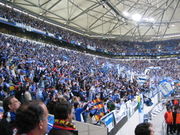
The following season set a greater challenge, but despite a slow start which included a 1–3 loss against Real Madrid, Porto never lost again in the Champions League, relegating Olympique de Marseille to the UEFA Cup (where they reached the final), drawing with Manchester United at Old Trafford in the dying minutes of play to go through on aggregate, and beating Olympique Lyonnais and Deportivo La Coruña. Porto beat AS Monaco 3–0 in the Final, played in Arena AufSchalke in Germany. Porto's UEFA Champions League winning line-up for their spectacular cup-run was: Vítor Baía, Nuno Valente, Ricardo Carvalho, Jorge Costa(c), Paulo Ferreira, Costinha, Maniche, Pedro Mendes, Deco (Pedro Emanuel), Derlei (Benni McCarthy), and Carlos Alberto (Dmitri Alenichev).
| Stage | Opponent | Home | Away |
|---|---|---|---|
| Group stage | Partizan Belgrade | 2–1 | 1–1 |
| Group stage | Real Madrid | 1–3 | 1–1 |
| Group stage | Marseille | 1–0 | 3–2 |
| 1/8 | Manchester United | 2–1 | 1–1 |
| 1/4 | Lyon | 2–0 | 2–2 |
| 1/2 | Deportivo La Coruña | 0–0 | 1–0 |
| Final | AS Monaco | 3–0 | |
After the victory, Porto became the Portuguese side with the most European cups won – 2 CL/ECC, UEFA Super Cup plus a UEFA Cup, compared with the two ECC by SL Benfica and the one CWC by Sporting CP.
Even after the departure of José Mourinho to Chelsea, the club kept winning at the international level. On 12 December 2004, Porto won the last-held Intercontinental Cup, by beating Once Caldas from Colombia 8–7 in a penalty shoot-out.
Recent seasons
| Season | League | Cup | Europe | Other competitions | Top scorer1 | |||||||||||
|---|---|---|---|---|---|---|---|---|---|---|---|---|---|---|---|---|
| Division | Pos. | Pl. | W | D | L | GS | GA | Pts | Name | Goals | ||||||
| 1999–00 | Portuguese Liga | 2nd | 34 | 22 | 7 | 5 | 66 | 26 | 73 | W | Champions League | QF | Portuguese SuperCup | RU | 38 | |
| 2000–01 | Portuguese Liga | 2nd | 34 | 24 | 4 | 6 | 73 | 27 | 76 | W | UEFA Cup | QF | Portuguese SuperCup | W | 22 | |
| 2001–02 | Portuguese Liga | 3rd | 34 | 21 | 5 | 8 | 66 | 34 | 68 | QF | Champions League | 2nd GS | 13 | |||
| 2002–03 | Portuguese Liga | 1st | 34 | 27 | 5 | 2 | 73 | 26 | 86 | W | UEFA Cup | W | Portuguese SuperCup | W | 13 | |
| 2003–04 | Portuguese Liga | 1st | 34 | 25 | 7 | 2 | 63 | 19 | 82 | W | Champions League | W | Portuguese SuperCup | W | 20 | |
| UEFA Super Cup | RU | |||||||||||||||
| 2004–05 | Portuguese Liga | 2nd | 34 | 17 | 11 | 6 | 39 | 26 | 62 | Last 32 | Champions League | Last 16 | UEFA Super Cup | RU | 11 | |
| Intercontinental Cup | W | |||||||||||||||
| 2005–06 | Portuguese Liga | 1st | 34 | 24 | 7 | 3 | 54 | 16 | 79 | W | Champions League | GS | Portuguese SuperCup | W | 10 | |
| 2006–07 | Portuguese Liga | 1st | 30 | 22 | 3 | 5 | 65 | 20 | 69 | Last 64 | Champions League | Last 16 | Portuguese SuperCup | RU | 11 | |
| 2007–08 | Portuguese Liga | 1st | 30 | 24 | 3 | 3 | 60 | 13 | 692 | RU | Champions League | Last 16 | Portuguese SuperCup | RU | 24 | |
| 2008–09 | Portuguese Liga | 1st | 30 | 21 | 7 | 2 | 61 | 18 | 70 | W | Champions League | QF | Portuguese SuperCup | W | 10 | |
| 2009–10 | Portuguese Liga | 3rd | 30 | 21 | 5 | 4 | 70 | 26 | 68 | W | Champions League | Last 16 | Portuguese League Cup | RU | 25 | |
| Portuguese SuperCup | W | |||||||||||||||
1Includes all goals scored in Portuguese Liga.
2Porto were deducted six points due to suspicion on attempted bribery of referees in the 2003–04 season (Pinto da Costa denied it and after the trial the club was absolved).[2]
- Last updated: 9 May 2010
- Pos. = Position; Pl = Match played; W = Win; D = Draw; L = Lost; GS = Goal Scored; GA = Goal Against; Pts = Points
Statistics
- Participations in the Portuguese top-level division: 76
- Games played: 1988
- Games won: 1287
- Games drawn: 369
- Games lost: 332
- Goals scored: 4427 (average 2.23 per game)
- Goals conceded: 1876 (average 0.94 per game)
- Best position: Champion (24times)
- Worst position: 9th (1969–70)
- Season with more points: 67 in 1990–91 (2 points per win) and 86 in 2002–03 (3 points per win)
- Player with most games: João Domingos Pinto with 407
- Player with most goals: Fernando Gomes with 288
- Manager with most games: Pedroto with 236
Stadium
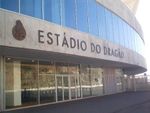
Porto's home games are played at Estádio do Dragão (English: Dragon's Stadium) in Porto. Built as a replacement for FC Porto's old ground, Estádio das Antas, and as a venue for UEFA Euro 2004, Estádio do Dragão has an all-seated capacity of 50,399. The stadium's name is derived from the presence of a dragon on the crest of the city of Porto during the Monarchy, which is also the nickname of Porto fans.
Designed by Manuel Salgado and built by the Grupo Amorim, it cost €97,755,318, of which €18,430,956 was supported by the Portuguese taxpayers. To support costs, each stand carries one or two sponsor names: EDP for the south end, TMN and SAPO ADSL in the east stands, PT and Meo for the west stands, and finally Coca-Cola in the north stands. Away fans are placed in the left corner of the North stand, while Porto supporter groups ("SuperDragões" and "Colectivo Ultras 95") are at each end, although initially both groups were in the South stand. Sony's IP cameras enable around-the-clock surveillance at FC Porto [1] as a security measure.
Current squad
|
Helton
Fucile
Maicon
Rolando
Álvaro
Hulk
Fernando
Belluschi
Varela
João Moutinho
Falcao
|
| FC Porto Starting 11 in their 4-3-3 formation |
Note: Flags indicate national team as has been defined under FIFA eligibility rules. Players may hold more than one non-FIFA nationality.
|
|
Transfers 2010–11
In
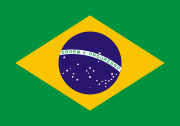 Walter - Internacional - €6 million (Own 75% of his rights)
Walter - Internacional - €6 million (Own 75% of his rights)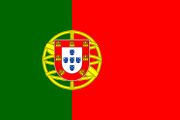 Ukra — Olhanense — Loan return
Ukra — Olhanense — Loan return Paweł Kieszek — Sporting de Braga — Free (Own 50% of his rights)
Paweł Kieszek — Sporting de Braga — Free (Own 50% of his rights) Sereno — Real Valladolid — Free
Sereno — Real Valladolid — Free Souza — Vasco da Gama — €3.5 million (Own 75% of his rights)
Souza — Vasco da Gama — €3.5 million (Own 75% of his rights) James Rodríguez — Banfield — €5.1 million (Own 70% of his rights)
James Rodríguez — Banfield — €5.1 million (Own 70% of his rights) João Moutinho — Sporting — €10 million + Nuno André Coelho (Own 75% of his rights)
João Moutinho — Sporting — €10 million + Nuno André Coelho (Own 75% of his rights) Emídio Rafael — Académica — €400.000
Emídio Rafael — Académica — €400.000 Nicolás Otamendi — Vélez Sársfield — €4 million (Own 50% of his rights)
Nicolás Otamendi — Vélez Sársfield — €4 million (Own 50% of his rights)
Total spending: ![]() €29 million
€29 million
Out
 Bruno Alves — Zenit - €22 Million
Bruno Alves — Zenit - €22 Million Nuno — Retired
Nuno — Retired Hélder Barbosa — Sporting de Braga — Free (Own 50% of his rights)
Hélder Barbosa — Sporting de Braga — Free (Own 50% of his rights) Nuno André Coelho — Sporting CP — €1 Million (Own 50% of his rights)
Nuno André Coelho — Sporting CP — €1 Million (Own 50% of his rights) Diego Valeri — UD Almería — Loan
Diego Valeri — UD Almería — Loan Pelé — Eskisehirspor - €420,000
Pelé — Eskisehirspor - €420,000 Ernesto Farías — Cruzeiro - 50% of Maicon's rights (Evaluated in €1.1 million)
Ernesto Farías — Cruzeiro - 50% of Maicon's rights (Evaluated in €1.1 million) Tomás Costa —
Tomás Costa —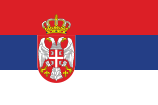 Milan Stepanov — Bursaspor - Free (Own 50% of his rights)
Milan Stepanov — Bursaspor - Free (Own 50% of his rights) Raul Meireles — Liverpool F.C. - €13 Million
Raul Meireles — Liverpool F.C. - €13 Million
Total income: ![]() €35.42 million
€35.42 million
Out on Loan
 Hugo Ventura -
Hugo Ventura -  Portimonense
Portimonense André Pinto -
André Pinto -  Portimonense
Portimonense Candeias -
Candeias -  Portimonense
Portimonense Orlando Sá -
Orlando Sá -  Nacional
Nacional Coulibaly Yero –
Coulibaly Yero –  Aves
Aves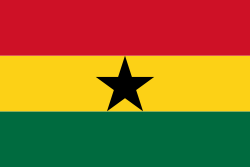 David Addy - Académica
David Addy - Académica Rabiola –
Rabiola –  Aves
Aves Abdoulaye -
Abdoulaye -  Sp. Covilhã
Sp. Covilhã Ivo Pinto -
Ivo Pinto -  Sp. Covilhã
Sp. Covilhã Steven Vitória -
Steven Vitória -  Sp. Covilhã
Sp. Covilhã Diogo Viana —
Diogo Viana — 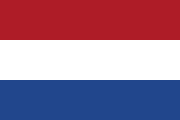 VVV-Venlo
VVV-Venlo Josué –
Josué –  VVV-Venlo
VVV-Venlo Jorge Chula –
Jorge Chula –  VVV-Venlo
VVV-Venlo Sebastián Prediguer –
Sebastián Prediguer –  Cruzeiro
Cruzeiro
Superleague Formula
FC Porto has a team in the Superleague Formula race car series where football teams lend their name to cars. Alan Docking Racing and Hitech Racing have operated the car. Ex Champ Car World Series driver Tristan Gommendy has drove the Porto car for most of the races, gaining two wins. Álvaro Parente drove the FC Porto car at one round at the Estoril Circuit, gaining one home win for the club.
Other sports
- Athletics
- Basketball
- Handball
- Rink Hockey
Notes and references
- ↑ "História Dos Estádios". FC Porto.pt. http://www.fcporto.pt/Clube/HistoriaEstadios/historiaestadios.asp.
- ↑ "Porto docked points, Boavista demoted". uefa.com. 9 May 2008. http://www.uefa.com/footballeurope/news/kind=2/newsid=693942.html. Retrieved 2008-05-12.
External links
- Official website (Portuguese) (also available in English)
- Super Dragões, official fansite (Portuguese)
- Portal dos Dragões, unofficial website (Portuguese)
|
|||||||||||||||||||||||
|
|||||
|
||||||||||||||||||||
|
|||||||||||||||||||||||||||
|
|||||
